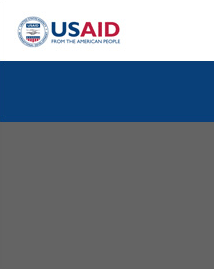Project Snapshot:
Total Funding: $2 million
Project Duration: April 2015-March 2016
Geographic Coverage:
Municipalities in the Federation of BiH (FBiH): Domaljevac, Gradačac, Kalesija, Odžak, Travnik and Tuzla
Municipalites in Republika Srpska (RS): Bijeljina, Doboj, Lopare, Modriča and Šamac
Implementing Partners:
UN Development Program (UNDP), Solidarity Fund of Republika Srpska, Fund for Support to the Areas Affected by Natural Disasters in the FBiH, local governments, Open Network NGO and Hastor Foundation
The Challenge
More than 43,000 homes were destroyed or damaged by the catastrophic floods and landslides in Bosnia and Herzegovina (BiH) in May 2014, which led to the evacuation of more than 40,000 persons, many of whom remain displaced more than a year later. Forty-six municipalities suffered severe damage and destruction as urban, industrial and rural areas were submerged in floodwaters up to three meters high.
Our Program
The Durable Housing Solutions for Families Affected by the Floods and Landslides project supported by USAID will help the worst-affected and most vulnerable households – those who currently reside in temporary accommodation or collective centers, and have family members who are elderly, widowed, unemployed or disabled. The project will provide durable housing units for 150 households – 75 in the FBiH and 75 in the RS – permanently displaced after the floods and landslides of 2014.
Five types of homes will be provided, depending on the size of household, ranging from 36m2 to 60m2. The prefabricated nature of the dwelling will substantially decrease construction time, expediting the process of settling families into their new homes.
The homes will meet advanced energy efficiency standards. In addition to using energy efficient materials and building practices, the homes will be equipped with solar energy systems for heating water and with solid-fuel burning stoves to generate heat in the winter. Each housing unit will have a heating system that includes a single solid-fuel stove and a roof solar panel. This system will cut each family’s energy costs in almost half – by some 400 KM ($220) per year – which means a great deal to a vulnerable family.
Results
So far, homes for five families in Bijeljina are under construction. A tender for selection of companies for construction work on 40 houses was published in early June. Beneficiary selection and verification is ongoing in 10 locations. The houses are made in Bosnia and Herzegovina, helping to create jobs and promote a greater market for pre-fabricated homes. Some 300 temporary jobs will be created in local businesses and communities to build the homes.
It is expected that 150 families (approx. 525 people) will be transitioned from temporary shelter into permanent accommodations that meet the domestic housing standards as proscribed by the Ministry of Human Rights and Refugees of BiH.
Who Finances It?
At present funding is in place with both entity governments to directly support the construction of no fewer than 150 new housing units with the governments providing finance for two-thirds of the investment (the basic package for 75 houses in FBiH and 75 in the RS).
USAID funds will be used to “top off” available government funding with one-third of the financial contribution needed (roughly $7,500 per unit). USAID’s contribution also allows for the introduction of the renewable energy systems.
The main institutional partners are the two entity governments operating through the flood recovery funds and selected local governments. The financial framework for the project is based on a cost-sharing agreement between USAID, the two entity governments and the affected local governments, where domestic partners are expected to contribute more than three-quarters of the overall investment. The FBiH Fund has already formally committed $1,073,306 for this project, while an agreement on the financial contributions by the RS Government is being discussed.
The program is expected to continue until 700 homes have been constructed, utilizing the same co-financing model with UNDP fundraising for the other 550 homes.








Comment
Make a general inquiry or suggest an improvement.